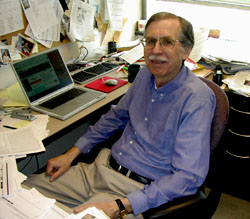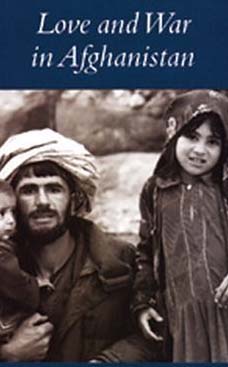
Liberia RPCV Dick Haws writes on the Elusive Numbers on False Rape
The Elusive Numbers on False Rape
by Dick Haws
Haws teaches journalism at Iowa State University.
Readers of The Kansas City Star were told last March that, according to police estimates, perhaps 25 percent of all rape reports nationwide are false.
But in Dallas, two months before that, the Morning News reported police findings that 6.2 percent of the 793 rapes in that city in 1995 (the most recent year available) were considered false.
And in Louisville, six months earlier, the author of an op-ed article in The Courier-Journal told readers that the percentage of rape reports that turn out to be false was the same nationally as for other major crimes - around 2 percent.
So how can one presumably simple statistic vary so widely? Because the number depends on whom you ask.
If you talk to sexual assault counselors, you'll most likely hear the low figure: that 2 percent of all accusations of sexual assault reported to law enforcement across the country are later found to be false, which, the counselors say, is the same rate as for other crimes. Of all the numbers out there, this has been cited most often, appearing in publications from The Boston Globe to the Houston Chronicle, The Christian Science Monitor, the Minneapolis Star Tribune, Newsweek, and Editor & Publisher.
Sometimes the figure is attributed to a particular source ? but that's still no guarantee the numbers can't be challenged. Marcia L. Roth, the author of the 1996 op-ed article in the Louisville Courier-Journal, attributed the 2 percent rate to the 1993 book Rape, the Misunderstood Crime, by Julie Allison and Lawrence Wrightsman. But Allison and Wrightsman weren't so unequivocal. Noting that the frequency of false rape reports is difficult to assess, they didn't do their own study; instead they looked at a synthesis of research findings from a 1979 book, Understanding the Rape Victim, by Sedelle Katz and Mary Ann Mazur. Katz and Mazur, it turns out, had reviewed studies dating back to 1956 that showed the frequency of unfounded and false rape reports ranging from a low of 1 percent to a high of 25 percent. Allison and Wrightsman simply chose the study that showed 2 percent.
Another named source for the 2 percent figure has been Against Our Will, the groundbreaking book on sexual violence by Susan Brownmiller published in 1975. She was reporting on the phenomenon that in New York City, the rate of false accusations dropped "dramatically" to 2 percent as soon as the police began using policewomen instead of men to interview complainants.
Sometimes the 2 percent figure appears without any attribution. It simply floats out there, as in a 1994 article in the Houston Chronicle that cites a women's center official as the source for the false-rape-report figure of "between 2 and 3 percent." Period. And sometimes the attribution is vague but credible-sounding, like "federal statistics" or "the FBI." In 1992, The Boston Globe reported that a rape counselor stated the 2 percent rate for false reporting of rapes is the same as for false reports of other crimes - "according to the FBI."
But the FBI has been saying since 1991 that the annual rate for the false reporting of forcible sexual assault across the country has been a consistent 8 percent (through 1995, the most recent year available). That's four times higher than the average of the false-reporting rates of the other crimes tracked by the FBI in its Uniform Crime Report. The agency's guidelines define a report as false when an investigation determines that no offense occurred. A complainant's failure or refusal to cooperate in the investigation does not, by itself, lead to a finding of false report.
If you look to academe for such studies about false reports, you'll come across the unusually high percentage found by the Purdue University sociologist Eugene J. Kanin, now retired. In an examination of rape reports from 1978 to 1987 in an unnamed midwestern city of 70,000, he found that of the 109 rapes reported to the police, 45, or 41 percent, were subsequently classified as false. Kanin also got the police records of two unnamed large state universities and found that in three years, 50 percent of the 64 rapes reported to campus police were determined to be false.
One explanation for such a wide range in the statistics might simply be that they come from different studies of different populations at different times. But there's also a strong political tilt to the debate. A low number would undercut a belief about rape as old as the story of Joseph and Potiphar's wife: that some women, out of shame or vengeance or, more recently, the desire to circumvent restrictions on their ability to get or pay for an abortion, claim that their consensual encounters or rebuffed advances were rapes. If the number is high, on the other hand, advocates for women who have been raped worry it may also taint the credibility of the genuine victims of sexual assault.
Yet the times may be changing, and while some women still make false charges, true rape victims don't seem to be feeling the backlash. The Kansas City Star reported as much when it assessed the impact earlier this year of the false rape complaint lodged against Michael Irvin and Erik Williams of the Dallas Cowboys. "We're not having any fallout," a Dallas sexual abuse counselor told the Star in March. "Had this been twenty years ago, I would have really worried about it."
It's obvious every one of these numbers has its shortcoming. Defenders of low rates of "false reports" generally base their opinions on studies that, for the most part, are more than twenty years old. Since then, there's been a virtual revolution in the way the police and the courts respond to sexual assault.
The FBI's numbers have also been criticized on several grounds, including the bureau's assumption that all 16,765 police agencies across the country have carefully and uniformly followed its guidelines for judging a rape "unfounded." That's simply not likely.
And some of the studies are obviously limited. Kanin of Purdue warned against reading too much into his examination of the small midwestern city: "Certainly our intent is not to suggest that the 41 percent incidence found here be extrapolated to other populations, particularly in light of our ignorance regarding the structural variables."
For the reporter, the conclusion is clear. Don't rely on one source. Talk to the local sexual assault counselors, talk to the local police, talk to the FBI, talk to the academics. Try to make some sense out of all the different numbers. And be careful.










